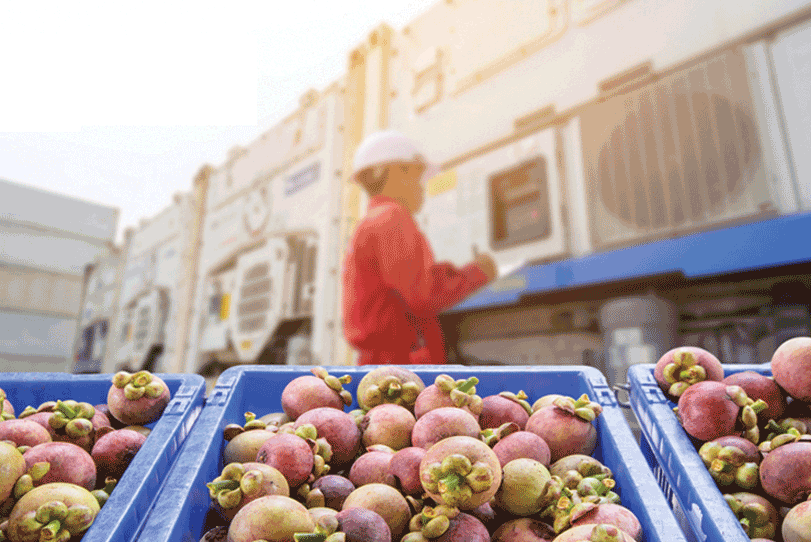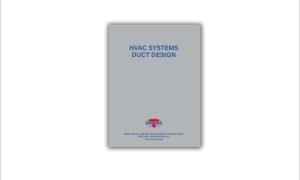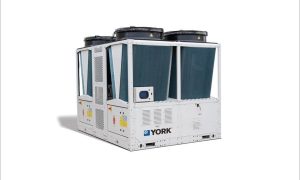A forward-looking insight on the untapped opportunities in cold chain industry.
India is a surplus producer in several agri commodities. However, the country makes substantial postharvest losses due to lack of investment in cold storages, warehouses, processing units and exports. According to a Yes Bank study, published in 2012, India is able to store only 2 percent of its farm produce in temperature-controlled environment as against 8 percent for the Asia-Pacific sector and 85 percent for Europe and North America. The recently published India Cooling Action Plan finds, while India has a large inventory of cold storages or refrigerated warehouses, the remaining elements of cold chain infrastructure like pack houses, reefer transport, and ripening chambers—are largely missing.
As a result, despite being the world’s largest producer of items such as pulses, spices, milk, bananas and second-largest producer of wheat, rice and vegetables, a huge percentage of India’s population remain undernourished. According to Global Hunger Index 2020, India ranks 94 among 107 countries in terms of hunger, and with a score of 27.2, it continues to be in the ‘severe’ hunger category. It has also been estimated that India’s postharvest losses can result in annual economic losses of at least Rs. 1,00,000 crore.
“Lack of refrigerated transport is one of the biggest contributors to food losses. There is a major gap in the number of refrigerated trucks,” observed Gopaal Ahuja, Chairman, Komal Exotic Spices Pvt Ltd. and Chairman of Food Processing Committee of Indo-American Chamber of Commerce.
Also, cold chain remains an integral element in pharmaceutical supply chain. Of late, Union Health Minister Harsh Vardhan said that the government expects to receive and utilise 400-500 million vaccine doses for COVID-19, and cover approximately 20-25 crore people by July 2021. However, the next challenge that awaits the government lies in providing the adequate and efficient end-to-end cold chain for the vaccination drive. Thus, the cold chain industry has to play an important role and ramps up its capacity as the country is preparing for COVID-19 vaccine.
So, whether its storage and transportation of fruits and vegetables, processed foods, dairy and ice cream, pharma and healthcare, or hospitality, the cold chain industry has tremendous growth potential. Also, recent changes in the Essential Commodities Act have removed restrictions on the storage of agricultural produce. This will further improve the prospects in this key sector.
Snapshots of cold storages in India
Cold storage and cold chain is important part of agriculture infrastructure as to preserve and maintain freshness of the agriculture produce not only to preserve the produce but to save crores of subsidy amount spend by the government. Primarily cold storage was setup for storage of potato, now storage more than hundred agri commodities, medicinal herb, poultry, forest produce, ready to serve food by quick service restaurant, frozen food, dairy product etc.
“Importance of cold storage is realised during current pandemic scenario, when strategic essential supplies were stored and distributed in tier-1 and tier-2 cities during lockdown, once vaccine storage protocols is available with the industries can store at different locations in India with positive temperature,” said Ashish Guru, President of Gujarat Cold Storage Association and Vice President of Federation of All India Cold Storage Association. He is also the Chairman of Agriculture Committee at Gujarat Chambers of Commerce and Industry.
He adds, “Cold storage industry grew by 12-15 percent every year, thanks to generous subsidy offered by central and state governments not only for infrastructure but also for installation of solar plant, automation, refer vehicles, pack house, ripening chambers too.”
Cold storage development in India is fragmented with maximum capacity setup in Uttar Pradesh followed by West Bengal, Bihar, Gujarat, Madhya Pradesh, Punjab, Rajasthan, Haryana and Delhi. Nowadays cold storage for perishable agri produce are developed with CO2 monitoring facility, maintaining precise temperature and humidity control to reduces weight loss to minimal. Today, world- class machinery like compressor and cooling coil are available in local markets with good after-sales services and maintenance. As per recent Agricultural Produce Market Committee (APMC) Act amendment Bill, new private markets, farmer customer markets would be equipped with cold storages facilities which will help farmers to fetch better price realisation. APMC should setup cold storages and get it registered with WDRA and should provide finance to farmers on the cold storage receipts, informs Mr Guru. Demand for potato-based processed foods has increased demand for storage of processed potato in the country.
“To accelerate cold storage growth in urban areas, the government should consider increasing Floor Space Index (FSI), reduction in property tax, abolition of GST, and removal of electricity duty. The government should also consider storing of agri commodities purchased at Minimum Support Price (MSP) should be stored in cold storages for scientific storage,” suggests Mr Guru.
He further observed: “Cold storages currently are passing through shortage of skilled store managers, also need skill development for machinery operator too. Modern cold storages are built with modern equipment like pre-engineered building; goods are handled with forklift, usage of rack storage, PUF panel and solar power plant installation.”
Micro cold storages can be the answer
In India, the current cold storage capacity is pegged at 37-39 million tonnes (MT). According to official statistics, there are about 7,645 cold storages in the country with 68 per cent of the capacity being used for potato, while 30 per cent is multi-commodity cold storage. However, the current facilities are neither adequate to meet the current demand nor are accessible to small farmers.
Mr Ahuja believes that portable, high efficient micro-cold storage units can be answer to this challenge. Micro-cold storage systems are portable units fitted with photovoltaic panels thus do not depend on grid electricity.
Srinivas Reddy, Senior General Manager – Commercial Refrigeration, Blue Star informs that the industry is ready with the micro cold storage. He said, “Gone are the days of building massive structures for cold storages. Today, technologies are available to offer cold storage solutions with modular panels and modular refrigeration systems. We can construct the solutions of any size and capacity to meet a client’s specific needs.”
Modular cold rooms are standard preservation chambers built at site to desired dimensions and cooling specifications. According to Mr Reddy, Blue Star’s modular cold rooms are developed using world-class PUF insulated panels and refrigeration units to offer reliable cooling and preservation chambers to meet a client’s needs.
COVID-19 impact
Talking about the impact of COVID-19 on the compressors market, S. Hari Nagendra Prasad, Senior Manager – Product Management at Tecumseh Products Company said, “On the business front, despite challenges, we could perform beyond our expectations thanks to export orders coming from Europe and Middle East.”
He adds, “On the technology front, the compressor solutions that are being developed by Tecumseh are aptly suited for the upcoming last-mile delivery of vaccines. The same technologies can be useful for the cold chain where we are using lower customised loads as well as standalone refrigeration systems where there is no power backup which will always help complement the vaccine efficiency and vaccine distribution.”
Tecumseh is also working with a few dedicated technocrats who are developing solutions for pharmaceutical and solar energy based cold chain, Mr Prasad informs.
Sharing details on the impact of COVID-19 on the industry from an end-user’s perspective, Mr Ahuja said, “Thanks to our inroads made into digitalisation especially in terms of digital payments has ameliorated a lot in the supply chain. The ease of payment and supply chains are maintained quite well by various online food ordering platforms and e-commerce companies. Though, there were issues due to migration of labour initially, it recovered well soon. Even in the Navi Mumbai wholesale market, there were hardly any shut down.”
Lack of refrigerated transport is one of the biggest contributors to food losses. There is a major gap in the number of refrigerated trucks .
Gopaal Ahuja, Chairman, Komal Exotic Spices Pvt Ltd
To accelerate cold storage growth in urban areas, the government should consider increasing FSI, reduction in property tax, abolition of GST, and removal of electricity duty.
Ashish Guru, President, Gujarat Cold Storage Association
On the technology front, the compressor solutions that are being developed by Tecumseh are aptly suited for the upcoming last-mile delivery of vaccines.
S. Hari Nagendra Prasad, Sr Manager – Product Management, Tecumseh Products Company
Gone are the days of building massive structures for cold storages. Today, technologies are available to offer cold storage solutions with modular panels and modular refrigeration systems.
Srinivas Reddy, Sr GM – Commercial Refrigeration, Blue Star
Cookie Consent
We use cookies to personalize your experience. By continuing to visit this website you agree to our Terms & Conditions, Privacy Policy and Cookie Policy.















